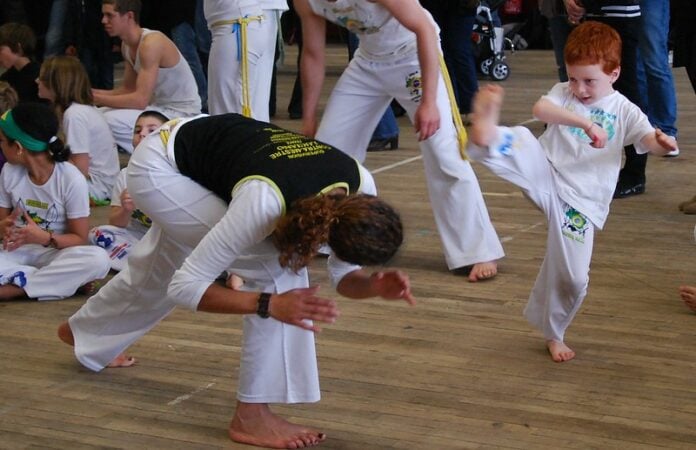In our research for a Dance Guide to Lisbon, Portugal, we discovered seven different unusual dance classes that you might be interested in trying if you’ve been looking for something new to try in Portugal’s capital city.
Not only can dance decidedly improve brain health, according to a 2003 study in the New England Journal of Medicine, but it is also the perfect way to make new connections in Lisbon. Let’s dive into this list of interesting dances that you might be surprised to learn are available.
1. Irish Dancing
Irish dancing is a traditional dance form that dates back to the 17th century in Ireland. It evolved from folk dancing and was influenced by French quadrilles and English country dancing. The dance was primarily a social activity in rural communities performed at gatherings and celebrations.
The style of Irish dancing is characterized by a stiff upper body and quick, precise movements of the feet. Dancers perform either solo or in groups, with music typically provided by traditional Irish instruments. The dance includes both soft shoe and hard shoe performances, distinguishing between light, graceful steps and rhythmic, percussive movements.
Where to Learn Irish Dancing in Lisbon: At Dance Factory Studios (Rua Soares dos Reis, 11A) in Campolide, you can take Irish Dancing classes on Tuesdays and Thursdays, with complete beginners starting at 7:00 pm on Tuesday nights. Irish Dance project is Friday nights at 7 pm, and there is even an Irish Kids dance class on Saturdays at 10:30 am.
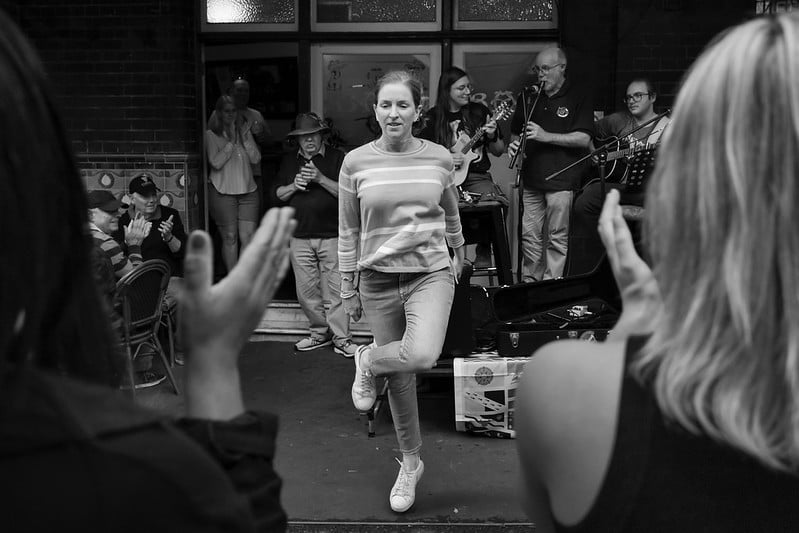
2. Roda Casino
Casino is a Cuban variety of freestyle salsa where the lead decides on the next moves. The Roda de Casino originated in Cuba in the late 1950s. It developed in Havana’s casinos and clubs, blending American jazz with traditional Cuban dances. This style gained popularity for its dynamic group formations. Dancers form a circle, or “roda,” executing synchronized moves called out by a leader.
Roda de Casino is characterized by its playful and interactive style. It incorporates various salsa moves, with partners swapping in a circular motion. This dance emphasizes teamwork and the joy of movement. Its festive nature reflects the vibrant Cuban culture, making it a favorite worldwide.
Where to Learn Roda Casino in Lisbon: At Dance Factory Studios (Rua Soares dos Reis, 11A) in Campolide, there is one Roda Casino class a week, which is on Monday nights at 9:30 pm. UDance in Santos also has a Level 1 Friday night class from 8:35 pm – 9:35 pm immediately after a beginner-level Cuban salsa class.
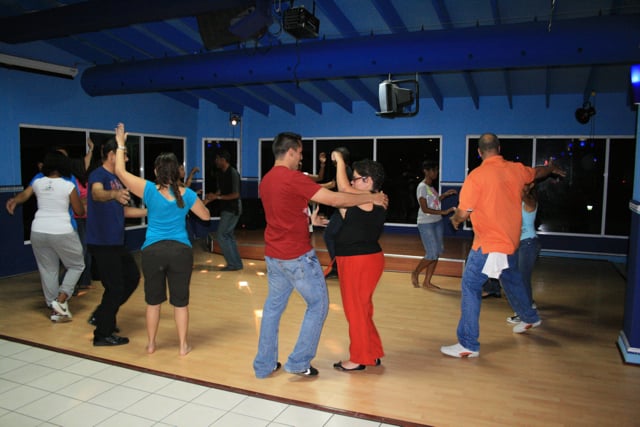
3. Bharata Natyam
Bharata Natyam is an ancient Indian dance form regarded as the oldest academic dance style globally. It embodies culture, wisdom, art, and yoga, showcasing a rich heritage. Originating in Tamil Nadu, it was traditionally performed in temples as a spiritual practice. Over centuries, it evolved into a classical dance form celebrated worldwide. Its history is intertwined with religious and cultural narratives, making it a repository of traditional Indian storytelling.
The style of Bharata Natyam is characterized by a combination of grace, strength, and stamina. It demands meticulous body placement and a stable technique, foundational to mastering choreography. The Pandanallur school, in particular, is renowned for its rigorous training regime, focusing on long-term body alignment and a solid technical base. This dance form integrates technique and interpretation, where movements and postures are acts of beauty and also expressions of inner strength and endurance.
Where to Learn Bharata Natyam in Lisbon: Tarika Valli teaches two Bharata Natyam classes per week on Mondays at 11:00 am and Tuesdays at 12:30 pm at Jaya Aerial Lab (Rua da Escola de Medicina Veterinária 15).
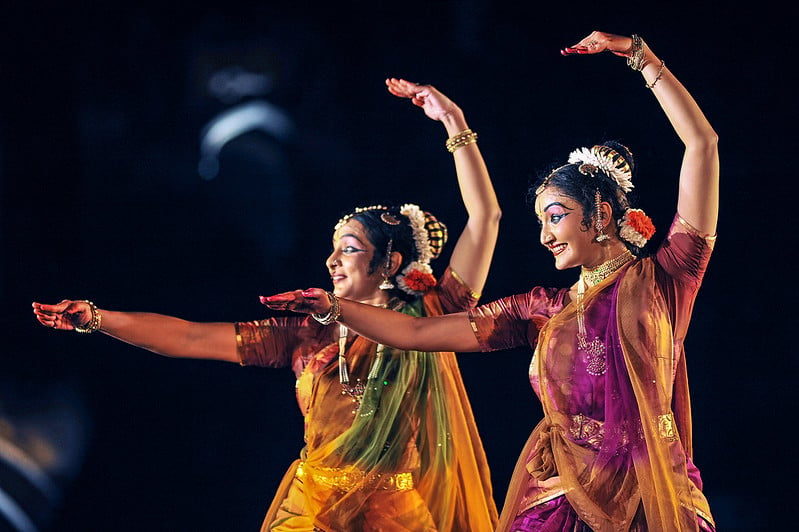
4. Capoeira
Capoeira is a Brazilian martial art that emerged in the 16th century, developed by African slaves. It blends dance, acrobatics, and music, symbolizing resistance against oppression. Initially, it was a method for slaves to practice self-defense under the guise of dancing. Over time, capoeira evolved into a cultural phenomenon, gaining legal recognition in Brazil by the 20th century.
The style of capoeira is characterized by fluid, dance-like movements and powerful kicks. Music is integral, with instruments and songs guiding the rhythm of the fight. Participants form a circle, or “roda,” taking turns to enter and showcase their skills. The art emphasizes cunning, stealth, and agility, reflecting its roots in survival and freedom. Today, capoeira is practiced worldwide and celebrates Brazilian heritage and the resilience of the human spirit.
Where to Learn Capoeira in Lisbon: I took a capoeira class in a small town in Brazil once and I never forgot it. The combination of music, self-defense, and rhythm felt so unique. Despite the large Brazilian community in Lisbon, it’s actually difficult to find a place to learn capoeira outside of one-off workshops and special events.
The best location that we can recommend is a gym called Ginásio Beija-Flor Lisboa (R. João José Cochofel) which offers classes on Mondays, Wednesdays, and Fridays from 8:00 pm-9:30 pm for adults. Kids classes start from 6:00 pm. Young adults are from 7:00 pm-8:00 pm. Contact the gym via chat on their website or via email at [email protected].
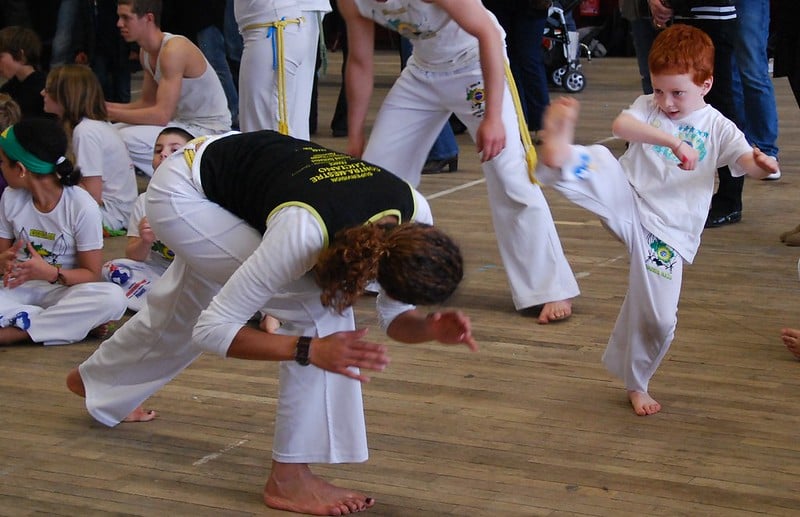
5. High Heels
High heels dance classes blend the art of dancing with the elegance of high heels. Originating in the early 2000s, these classes gained popularity for empowering participants and enhancing confidence. The style merges jazz, voguing, and hip-hop, focusing on posture, balance, and fluidity. Classes cater to all levels, emphasizing expression and femininity.
The allure of high heels dance lies in its ability to transform movement into a statement of strength and grace. Instructors focus on technique, ensuring safety and comfort in heels. This dance form celebrates body positivity, encouraging dancers to embrace their individuality. With global workshops and online tutorials, high heels dance continues to inspire a diverse audience.
Where to Learn High Heels in Lisbon: High heels classes are offered at UDance in Santos for all levels on Wednesdays at 7:30 pm. Jazzy Studios in Santos also offers high heels classes on Tuesdays and Fridays at 6:30 pm.

6. Lyra
Lyra, also known as aerial hoop, is a form of aerial acrobatics popularized in the late 20th century. It involves performing acrobatics and dance movements within a circular steel apparatus suspended from the ceiling. Originating from the circus tradition, Lyra has evolved into a fitness and artistic discipline. Classes combine strength training, flexibility, and artistic expression, catering to various skill levels.
The style of lyra classes emphasizes grace, fluidity, and control. Instructors focus on teaching students how to safely execute spins, rolls, and poses within the hoop. As students progress, they learn to choreograph sequences that tell a story or convey emotions. The aesthetic of lyra performance is marked by a blend of elegance and athleticism and makes it a captivating art form to both practice and watch.
Where to Learn Lyra (Aerial Hoop) in Lisbon: The best place to take Lyra in Lisbon is at Jaya Aerial Lab (Rua da Escola de Medicina Veterinária 15) on Thursdays at 6:30 pm and Saturdays at 10:00 am. As its name implies, Jaya Aerial Lab offers a number of aerial classes including silks, sling, static trapeze, and rope. You can also check out Lisbon Aerial Class on Instagram, which offers aerial classes on Wednesdays at 7:30 pm and Saturdays at 10:30 am. Contact them ahead of time to see if hoop training is available on the day.
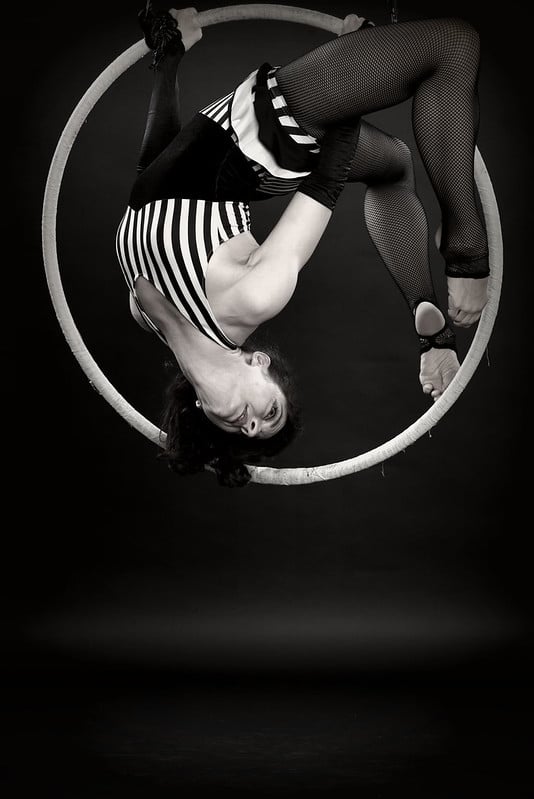
Natalie Schaettle, Flickr
7. Flamenco
Flamenco dance, originating from Andalusia, Spain, in the 18th century, is a deeply expressive and highly evocative art form. Rooted in the cultural meld of Gypsy, Moorish, and Andalusian traditions, it conveys complex emotions through intricate footwork, hand clapping, and body movements. Classes aim to teach these elements, focusing on rhythm, posture, and the art of storytelling through dance.
The style of flamenco dance classes varies, blending traditional techniques with contemporary interpretations. Beginners learn basic steps, rhythms, and the importance of emotional expression, while advanced students delve into complex choreographies and improvisation. Instructors emphasize the connection between dancer, music, and audience and ensure that students grasp the soulful essence of flamenco. This art form celebrates individuality and encourages dancers to develop a unique style within its traditional framework.
Where to Learn Flamenco in Lisbon: Rueda Flamenca in Arroios (R. José Estevâo, 45b) is your best bet to learn Flamenco in Lisbon. Classes are offered on Tuesdays at 8:00 pm for beginners and Thursdays at 7:00 pm for more advanced dancers. They also offer classes in Benfica (Estrada do Calhariz de Benfica nº11) on Saturdays from 11:00 am for advanced dancers. This flamenco family operated a school in São Paulo for 20 years before moving to Lisbon after the pandemic.
You can find more flamenco classes at Clube Andaluz in Benfica at the same location where Rueda Flamenca teaches on Saturdays. Beginners start on Tuesday nights at 9:30 pm with several more classes throughout the week. Overall, Clube Andaluz is more beginner-friendly.
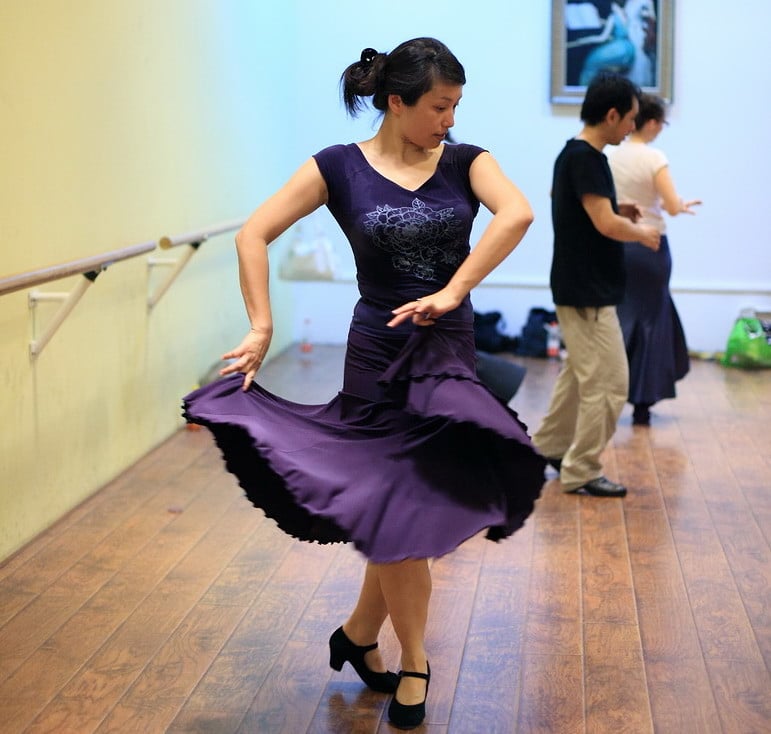
Final Thoughts
If you look hard enough, Lisbon offers much more variety than you might expect in terms of its dance classes. Go on and try something new. Whether it’s with a partner or on your own, get out there and dance!

